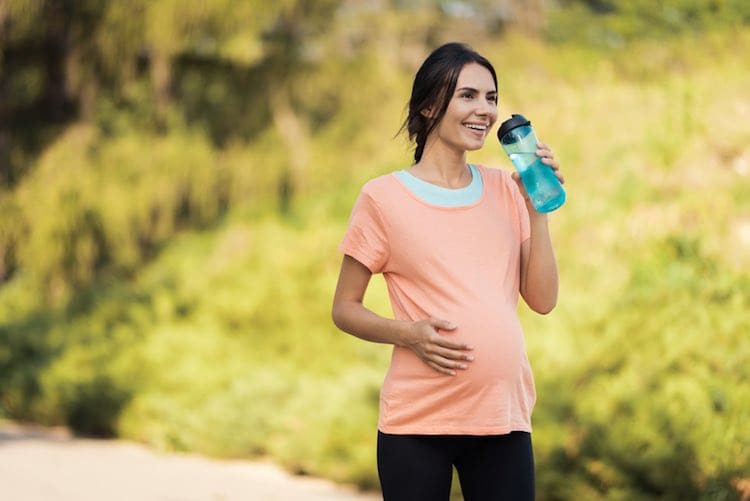Researchers have reviewed attitudes towards physical activity during pregnancy and highlighted enablers and barriers.
There are a number of benefits associated with exercising during uncomplicated pregnancies. These include improved fitness, reduced risk of excessive weight gain, lower risk of adverse pregnancy outcomes like pre-eclampsia and pre-term birth, improved mental health and better sleep. Exercise during pregnancy is also important for obese women and those with gestational diabetes.
Despite most pregnancy guidelines recommending exercise during pregnancy, a large number of pregnant women participate in little to no physical activity. There are a number of reasons for this including the perception that exercise may put their baby at risk and be damaging to a healthy pregnancy. It’s important to understand the full scope of barriers to exercising while pregnant and equally what enabling factors may encourage women to get active during their pregnancy.
Researchers assessed attitudes, barriers and enablers to physical activity as perceived by women during both uncomplicated pregnancies and women with gestational diabetes. Researchers analysed the available qualitative and quantitative evidence surrounding engagement with exercise during pregnancy. The qualitative data included self-reported attitudes, barriers and enablers associated with physical activity and the quantitative information provided insight into intrapersonal, interpersonal and environmental factors affecting exercise during pregnancy.
The women involved in the included studies were from a range of ages, BMIs, countries and cultural, socioeconomic and educational backgrounds. The results showed that attitudes towards physical activity were mostly positive in pregnant women, considering it important, beneficial and safe.
Barriers to physical activity included fatigue, time restraints, discomfort associated with pregnancy, like nausea and pain, and lack of confidence and motivation to work out. Safety concerns were less frequently cited as barriers and included concerns for their own health and that of their baby. In women from low-income backgrounds, the lack of safe and affordable places to exercise was a frequent barrier cited.
Environmental barriers that emerged were lack of access and weather issues. Social support emerged as a strong enabler of exercise during pregnancy, as did the positive effect on decreasing stress and improving appearance. Fostering good maternal and foetal health was another enabler.
Implications
With the multitude of changes that the body goes through during pregnancy, it can be difficult to maintain consistent and adequate physical activity levels. It’s important for your own health and that of your baby that you remain healthy during pregnancy and this includes both healthy eating and exercise. You may want to enlist the help of friends and family to exercise with you during this time and research outdoor areas near you that might be nice to exercise in – some even have outdoor equipment you can use for free. Walking groups and other fitness initiatives are offered by some councils and NGOs so do your research too see what’s available to you. Remember, it’s important to talk to your doctor about what exercise you plan on doing while pregnant and ensure that you’ve got their tick of approval before starting.

